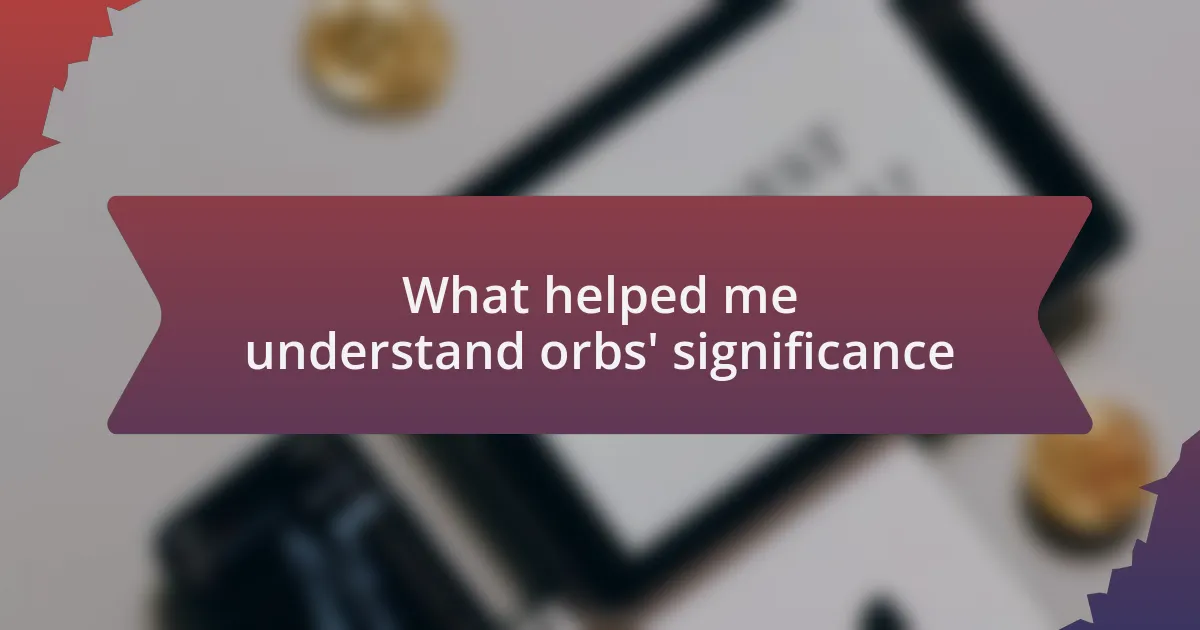Key takeaways:
- Dreams serve as a reflective tool for personal growth, revealing subconscious thoughts and guiding us to confront challenges.
- Common dream themes, such as falling or being chased, symbolize deeper fears and insecurities that can offer valuable insights:
- Keeping a dream journal and practicing imagery association can enhance personal dream analysis and uncover recurring emotions.
- Dreams may act as a bridge to unresolved feelings, highlighting the importance of embracing and understanding our emotional experiences.
Author: Evelyn Hartman
Bio: Evelyn Hartman is a contemporary author known for her evocative storytelling and rich character development. With a background in psychology, she weaves intricate narratives that explore the complexities of human relationships and personal growth. Her debut novel, “Whispers in the Wind,” garnered critical acclaim and established her as a powerful voice in modern literature. Evelyn resides in the Pacific Northwest, where she draws inspiration from the vibrant landscapes and diverse communities around her. When she’s not writing, she enjoys hiking, gardening, and spending time with her two rescue dogs.
Understanding dream interpretation
Dream interpretation is a fascinating blend of psychology and spirituality, reflecting our subconscious thoughts and emotions. Have you ever woken up from a vivid dream, feeling like it had some hidden message? I certainly have, and it often left me pondering the deeper meanings behind those night-time narratives.
When I first delved into interpreting my dreams, I found that each symbol could represent something personal to me. For instance, dreaming about water often signifies emotional clarity or turbulence in my life. It’s intriguing how these dream elements can mirror our waking experiences, making us more aware of our inner selves.
Moreover, I’ve learned that common themes, such as falling or flying, can resonate universally, yet their significance may vary greatly from person to person. Do you think this variation allows for a richer understanding of our unique emotional landscapes? I believe it does, as it encourages us to explore what resonates with our own lives, leading to profound insights that may otherwise go unnoticed.
Importance of dreams in life
The importance of dreams in our lives cannot be overstated. For me, dreams serve as a nightly diary of thoughts and feelings I might ignore during my busy days. Have you ever woken up with a sense of clarity or resolve after a dream? I certainly have, and it often feels like a nudge from my subconscious, guiding me to confront challenges I’ve overlooked.
I recall a particularly vivid dream where I was navigating through a dense fog—this experience mirrored my feelings of uncertainty at that time. The dream acted, in a way, as a compass, helping me reflect on the difficult decisions ahead. I believe dreams can provide us with a unique perspective, one that we might not access while we’re awake, acting as a reflective tool for our personal growth.
Furthermore, sharing dreams with friends or loved ones often leads to deeper conversations about our fears and aspirations. When I discuss my dreams with others, I find that their insights might reveal layers to my experience I hadn’t considered. How enriching is that, to transform a simple dream into a pathway for more profound connections?
Common themes in dreams
One common theme I often notice in dreams is the sensation of falling. It has happened to me several times, where I feel that jolt just before hitting the ground. Isn’t it fascinating how this feeling can represent our fears of losing control or insecurity in waking life? I’ve found that exploring such dreams can offer clarity about areas where I may feel overwhelmed.
Another prevalent theme involves being chased. I vividly remember a time when I dreamt I was being pursued through an endless maze. The anxiety I felt in that moment was palpable, and upon reflection, it revealed my avoidance of certain responsibilities. Have you ever had a similar dream? I think these chase dreams often symbolize something we’re running from, perhaps issues we need to face head-on.
Lastly, the presence of water is another recurring motif. I once dreamt of standing on a beach, watching the waves crash. The roar of the ocean, both calming and powerful, made me reflect on my emotional state. Water in dreams can indicate a range of feelings, from tranquility to turmoil. Doesn’t it make you wonder how the elements in our dreams connect to our inner worlds? Understanding these themes can provide valuable insights that mirror our daily lives.
Techniques for personal dream analysis
When it comes to personal dream analysis, one technique I often use is to keep a dream journal. After each dream, I jot down every detail I can remember, no matter how small. This practice not only helps me recall dreams more vividly but also uncovers patterns over time. Have you ever noticed that certain symbols or feelings recur? Tracking these can deepen your understanding of what your subconscious is trying to communicate.
Another method that has proven invaluable is the practice of imagery association. I find that thinking about how I felt when I first wake up from a dream often leads to realizations about my waking life. For instance, I once woke up feeling eerily serene after dreaming of a vast meadow. It prompted me to reflect on the stress I was carrying and my need to find my own space to breathe. Isn’t it interesting how a simple emotion can point you to something needing your attention?
Lastly, I sometimes engage in guided visualization. I sit quietly and reopen the dream in my mind, allowing myself to immerse in the details again. During one such session, I revisited a dream where I was floating above a city. While at first it felt liberating, I realized upon reflection that it highlighted my longing for freedom amidst daily pressures. Have you ever tried to unpack a dream this way? It can reveal insights that are hard to access when we only look at dreams superficially.
My personal dream interpretation journey
My journey into dream interpretation began unexpectedly. I recall a vivid dream where I was swimming in an endless ocean, which left me with an overwhelming sense of freedom yet a confusing hint of anxiety. Reflecting on it over breakfast, I wondered, could this be my mind’s way of expressing both the joy of exploring new opportunities and the fear of losing myself in them?
One particularly eye-opening experience was when I delved into a nightmare I had about being chased through dark alleys. Instead of simply dismissing it as a bad dream, I took a moment to dissect the emotions that lingered when I woke up. I realized that the chase mirrored my real-life anxiety about an upcoming job interview. This connection was startling but made me think: how often do we overlook our dreams, thinking they’re mere sequences of odd stories, rather than keys to our inner thoughts?
As my understanding deepened, I started incorporating meditation before sleep, which transformed my dream landscape entirely. One night, I met an old friend who had passed away in a dream, and it stirred a flood of emotions that I had yet to process. I found myself pondering: could dreams truly serve as a bridge to unresolved feelings? This realization cemented my belief that every dream, even the most bizarre, carries a message waiting to be unraveled.
Lessons learned from my dreams
During my dream exploration, I encountered a recurring theme: losing my voice. In one particularly striking dream, I was desperately trying to call out for help but no sound emerged. After reflecting on this, I realized it resonated with feelings of being unheard in my waking life. Isn’t it fascinating how our subconscious addresses these deeper fears? The act of losing my voice in a dream prompted me to advocate more for myself, pushing me to confront situations where I felt silenced.
Then there was the dream where I found myself climbing a mountain, struggling yet exhilarated. Each step was a test of will, and as I reached the peak, I was overwhelmed with joy. This dream taught me about resilience and the satisfaction that comes from overcoming challenges. I began to wonder: could every struggle in life be a mountain I need to climb? This realization transformed the way I approached obstacles, reinforcing that every setback might actually be a setup for a victory.
Lastly, I recall a dream where I was surrounded by vibrant colors, each hue representing a different emotion. It felt like a mosaic of my thoughts and feelings, leading me to contemplate the importance of embracing my emotional spectrum. Have you ever considered how dreams might reflect the colorful chaos of our lives? This insight encouraged me to acknowledge and validate my feelings, reminding me that experiencing all emotions is not only normal but essential for personal growth.




